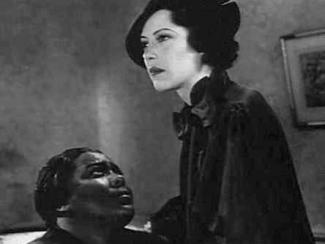
For years, the lighter-skinned dancer, actress, executive, educator, or whoever was always picked for opportunities before the darker-skinned Black person.
But the roots of “colorism” – which birthed the “tragic mulatto” trope and remains divisive in our communities today, actually has its roots in slavery.
A “mulatto’s” closeness to the master – they were often the master’s child, born of rape – gave them power over their enslaved kinfolk and sometimes even the ability to “pass” for white. This privilege created discord and distrust, and splintered our collective self-image – which slave masters wielded to control us further.
Light-skinned Black people could be ostracized from the Black community, while simultaneously being exploited – but never fully accepted – by whites. This is called the “tragic mulatto” trope.
According to dark-skinned actors and actresses in Hollywood, colorism is still alive and well, and it remains divisive in our communities. Light-skinned Blacks in movies and books still frequently feature as a tragic, sad, exotic, or confused character. Light-skinned privilege evokes an ugly heritage that few want to discuss.
These “divide and conquer” methods of white supremacy are real, and we still suffer from their impact!
But if we maintain our positive self-image despite what white society tells us is beautiful or powerful, then we can challenge divisive mindsets instilled by white supremacy. We’re all in this together!